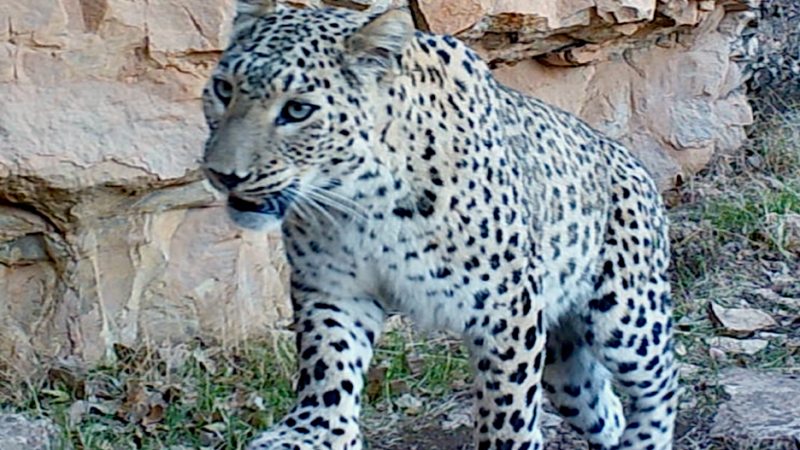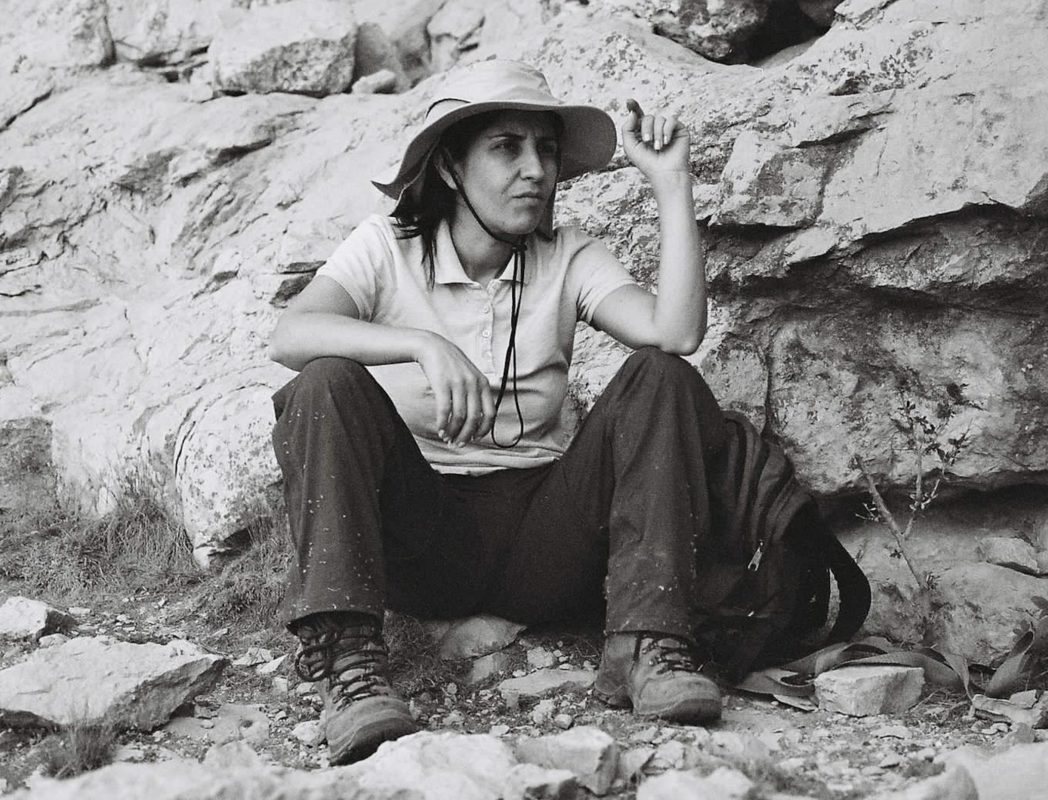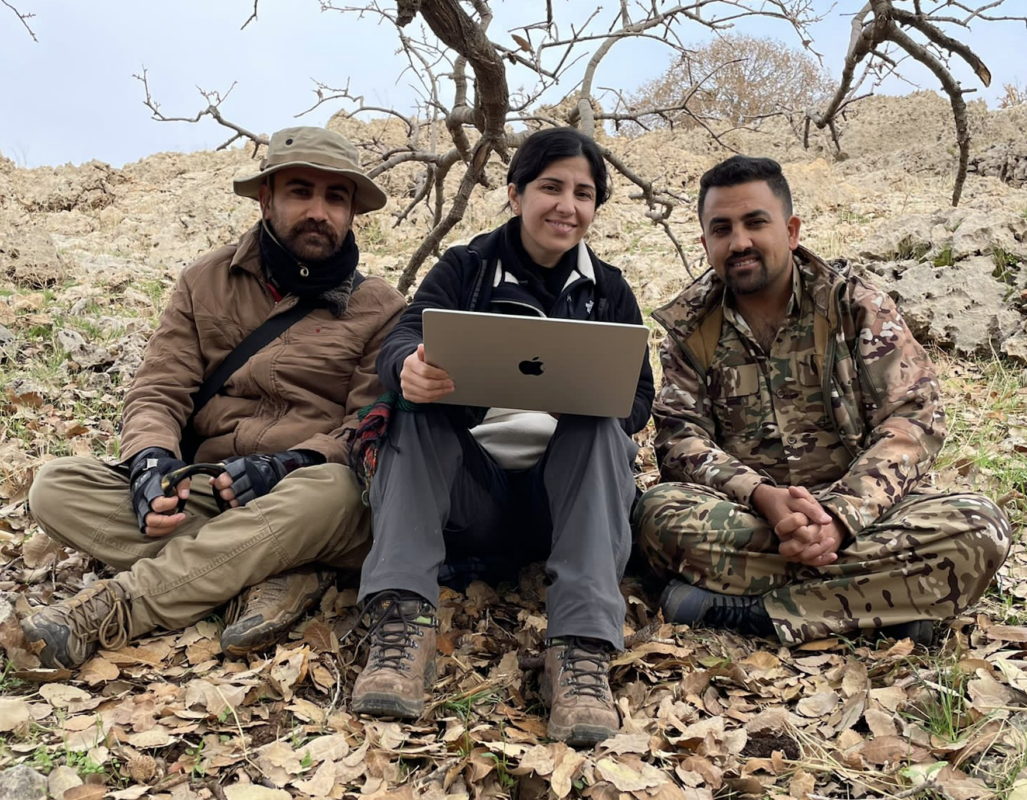
by 2023 Pritzker Award Finalist Hana Raza
I was born in the rugged mountains of Iraqi Kurdistan, where history has been a tale of persecution and resilience. The richness of our land has drawn both bounty and conflict, shaping my identity and forging my path towards nature conservation. My life has been a testament to the indomitable spirit that refuses to surrender to adversity.
From the very moment of my birth, my life was intertwined with the struggle for survival. My family were “Peshmerga” which means those who face death, who fiercely defended our freedom from Saddam Hussein’s brutal regime. Raised in makeshift mud houses that my father and his fellow Peshmerga built, my childhood was marked by relentless raids and danger all around us.
In 1987, when I was a few months old, a chemical bomb dropped near the shelter where our Peshmerga family lived. My little body was burnt and the effect of which remains on my body. Due to the escalating threats, my family had to flee to Iran, where we lived for four years as refugees till the 1991 Kurdish uprising. However, when we returned, the regions security and economy was in chaos.
Amidst this hardship, I focused on my education, and earned a degree in Biological Sciences. In 2008, still a third-year undergrad, I came across a conservation NGO called Nature Iraq that was undertaking biodiversity studies across the 17 governorates of Iraq. I joined their training program and in 2009 I became part of the team where I initiated and led their research on mammals. I spoke with villagers and found out that the animals they used to know were vanishing. The tales of leopards and other majestic creatures had become nostalgic echoes of a time when nature and people were more harmoniously intertwined. But the truth was grim.
The turmoil caused by decades of conflict and political unrest had forced villagers out of their homes and disrupted their relationship with nature. The ecological balance was further eroded by poverty, poaching, and a lack of understanding about the importance of biodiversity. The more I learned, the more I knew we had to do something. Our rich natural heritage was vanishing, and not enough people seemed to realize the gravity of the situation.

In 2011, something remarkable happened! My team and I discovered the Persian leopards in Iraq – a species previously believed to be locally extinct. This revelation was more than a discovery; it was a clarion call for the conservation of a fragile ecosystem. The plight of the Persian leopards mirrored our own, their resilience and fight for survival reflects the spirit of a nation that had endured trials and tribulations. The decade that followed was marked by challenges, both environmental and political. Deforestation, encroachment, water shortages, and both human and climate-induced forest fires were relentless adversaries. As the country grappled with crisis management and the looming specter of civil unrest, the protection of its biodiversity fell to the wayside.
But even amidst it all, there were glimmers of hope in individuals and NGOs who understood the value of their land and refused to give up. I realized that, despite the dire circumstances, the potential to drive change lay within these passionate hearts who need empowerment. This realization ignited the spark to establish Leopards Beyond Borders (LBB), a nonprofit conservation organization committed to safeguarding Iraq’s threatened wildlife and empowering local communities to become future conservation leaders. LBB was born out of necessity, a response to the lack of strategic action for species conservation and I hope it becomes a beacon of hope, a rallying point for those who understand that conservation of nature transcends political discord.

My journey has faced many hurdles, not only for a woman in a male-dominated society, but as a woman conservationist, who strives to protect rare large carnivore species, in a country that can hardly provide basic human necessity. Yet, it’s a journey I undertake with unwavering resolve, which in turn has yielded astounding rewards. Among them, I take great pride in having established the first nature reserve in the region, using the Persian leopard as a flagship species in 2018. Additionally, I successfully garnered support for a novel initiative to empower local communities to establish a community conservation area — a pioneering concept for Iraq.
Being recognized as a finalist for the Pritzker Environmental Genius Award is a reminder that I’m only a torchbearer for an entire ecosystem and the stories it holds. The resilience that defines my people and our homeland is mirrored in the tenacity of the wildlife we seek to protect. With each step, I draw strength from the mountains that have witnessed our struggles and victories, and empowered by the determination of a nation that refuses to be silenced by adversity.
This essay is written by a 2023 Pritzker Emerging Environmental Genius Award finalist. This year’s winner will be named on October 26.
